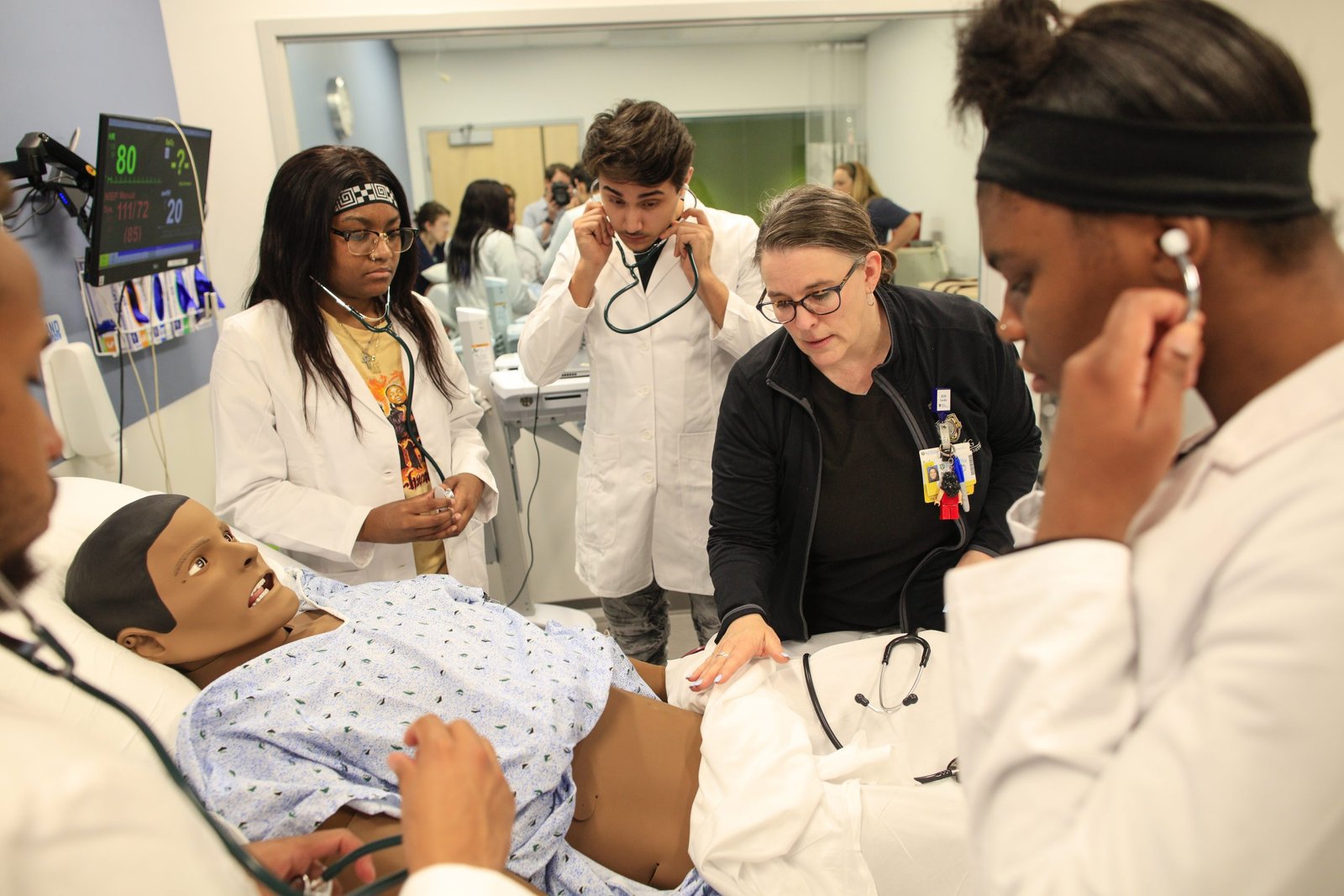To address the health inequities impacting underrepresented populations, higher education educators, industry professionals, and students are informed with teaching and programming focused on anti-bias and cultural competency.
Anti-bias education focuses on preventing discrimination and unfair treatment toward people of other races, ethnicities, religions, sexualities, and gender identities. Cultural competency is described as the awareness of one’s own beliefs, values, and experiences, and the ability to understand how those differ from people of other cultures.
With enhanced communication skills and cultural understanding when they work with patients, health care industry service providers are better able to address disparities affecting marginalized communities.
State and federal laws and health care schools’ accreditation standards often mandate anti-bias and cultural competency education and training. Such programs might be embedded within curricula, learned in a workshop or campus seminar, be part of an internship or professional training, or shared within community outreach opportunities.
As a best practice, Health Professions HEED Award recipient schools incorporate pedagogy, projects, and training focused on anti-bias and cultural competency in
both employee and student education.
At the University of Kentucky College of Medicine, content that is fundamental to the practice is integrated throughout the undergraduate medical school experience with components known as curricular threads. The objective of the Health Equity and Advocacy thread is to examine the practices of individual health care providers, institutions, and organizations to achieve health equity. Students identify approaches that best identify and mitigate individual and system-level biases. Given how imperative this knowledge
is, topics around the social determinants of health are
woven throughout the curriculum.
At the University of Virginia (UVA) School of Medicine, a new program led by UVA Health and collaborative institutions engages institutional leadership and health care support teams of faculty, staff, trainees, and students. The program, Stepping In: Creating A Culture of Respect and Inclusion, includes interactive workshops with video scenarios, improvisation experiences, and interactive discussions to teach individuals how to address discriminatory behavior in the health care environment. Also offered is a virtual conference, access to resources, data collection, and networking opportunities.
To advance cultural competency, the University of Rochester (UR) School of Nursing participates in the Equity and Anti-Racism Action Plan executed by the UR Medical Center. The project pillars include building an antiracist infrastructure, recruiting diverse learners and faculty, nurturing a respectful learning and work environment, exemplifying inclusion in physical and digital places, and engaging in equitable health care. To build upon the goal of inclusion, the UR School of Nursing conducts business with supply companies owned and operated by people from underrepresented communities.
With the same intent, Weill Cornell Medicine (WCM) has developed the Anti-Racism Task Force (ARTF), which advocates for the adoption of antiracist practices in medical education. The task force was developed in collaboration with a school chapter of White Coats for Black Lives, a national organization dedicated to dismantling racism and accompanying systems of oppression in health care, and the WCM chapter of the Student National Medical Association. ARTF highlights the voices and experiences of students from underrepresented and marginalized backgrounds in the pursuit of educational equity within the medical center.
With a $300,000 grant, the University of Cincinnati College of Nursing is developing a project titled Eliminating Structural Racism in Nursing Academia: A Systems Change Approach to Anti-Racist Nursing Education. It builds upon the American Association of Colleges of Nurses Leading Across Multidimensional Perspectives Culture and Climate Survey, deployed to 50 nursing schools, by selecting eight to 10 of those schools to create a new collaborative. The institutions will work together on projects that address structural racism and promote antiracist nursing education in their respective schools as well as find ways to make them replicable on a national scale.●
This article was published in our November/December 2023 issue.
Top photo: More than two dozen high school students participated in the University of Rochester School of Nursing and East High School’s Career Exploration Internship program.




















